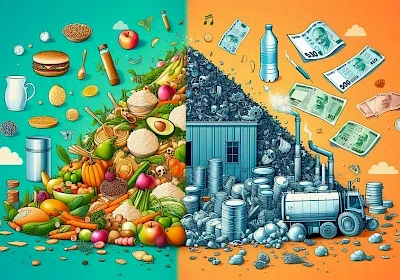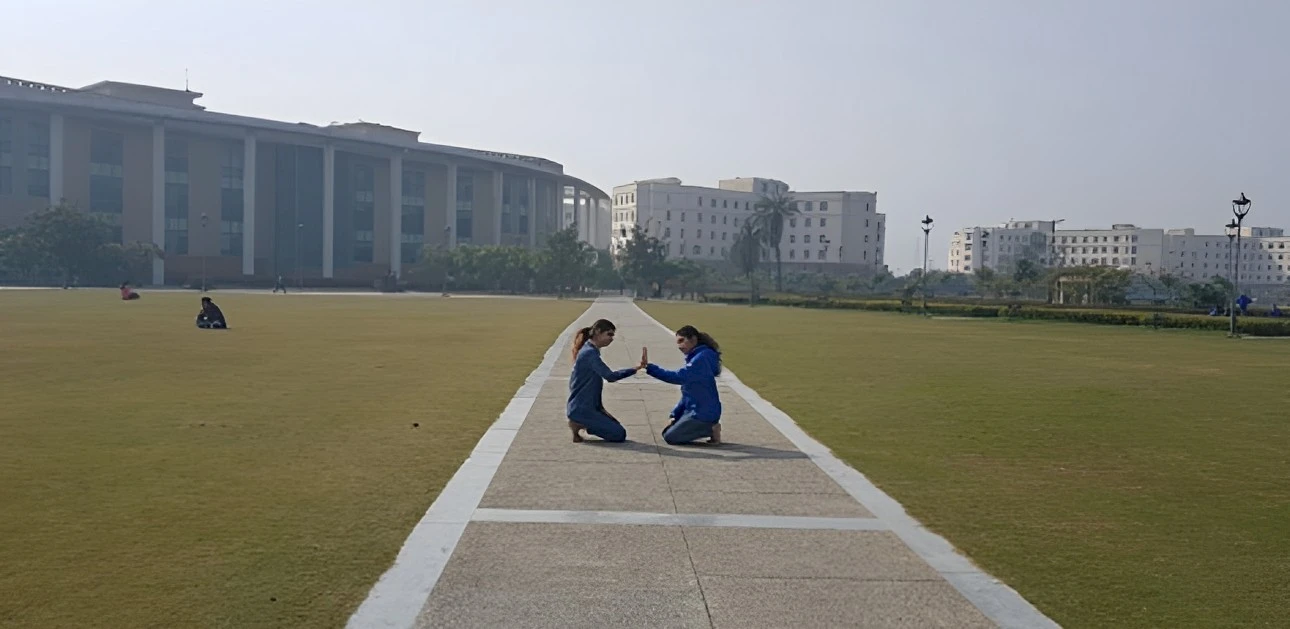Leading the path in Food Waste to Fuel research

Editorial / August 05, 2024
Remember in the 1985 blockbuster 'Back To The Future' in which actor Christopher Lloyd as Dr. Emmett Brown dumps leftover food into a time-travelling DeLorean car to get it moving? Almost four decades later, scientists have proved that Dr. Brown wasn't too far off.
In a research titled 'Waste to Wealth', Dr. Sanjeev Yadav, Associate Professor and Head of the Chemical Engineering Department of the School of Engineering, is going further. His research on converting waste into bioenergy and biomaterials works on the scientific frontiers to provide a shared blueprint under the UN Sustainable Development Goals.
"I recently finished a project where I converted food waste into hydrogen under the Food Waste to Fuel (F2F) theme. I use a thermochemical process to degrade waste into hydrogen in this process. Food waste can also be turned into biodiesel, and the remaining ash can be used as organic fertilizer," says Dr. Yadav.
Having published over 30 papers on the subject, Dr. Yadav, an alumnus of the Indian Institute of Technology (IIT) Roorkee and Delhi and the University of Washington, Seattle, USA, began work on this area after a B.Tech student had observed that there was a lot of food waste in the university dining halls. "In 2016, we decided to do a small project under the university's Opportunities for Undergraduate Research (OUR) program using thermochemical processes of pyrolysis and torrefaction. The result we got working at our well-equipped Biomass Conversion Laboratory was promising," says Dr. Yadav.
The research using a fixed-bed reactor – designed and fabricated in the university – is fed food waster with a chemical agent at varying temperatures. The reactor requires a thermal input of 200 to 320° C for torrefaction, 300-500° C for pyrolysis, and 650-1000° C for gasification to react for varying time between 30 to 120 minutes.
Dr. Yadav has attracted external grants of more than Rs 2 crore, including funds from the Science and Engineering Research Board (SERB) under the Young Scientist Scheme, the Department of Science and Technology under its Fund for Improvement of Science and Technology Infrastructure (FIST) scheme, and from the Council of Science and Technology, Uttar Pradesh.
Under the Food Waste to Fuel (F2F) research initiative, two PhD students have graduated, and two more are working on their dissertations. "Many undergraduate students have done some excellent work in the area, which has helped them get admissions to various top Indian and foreign universities," says Dr. Yadav.
The research gained traction from the Food Waste Index Report released by the United Nations Environment Programme (UNEP) in 2024. The study reveals that globally, 1.05 billion tonnes of food waste is generated. This amounts to a (including inedible parts) in 2022, which was almost one-fifth of all food available to consumers, and each person, on average, wasted 55 kg of food annually in India.
The weight of the global food waste in 2022 was more than India's total production of foodgrain, oilseeds, sugarcane, and horticultural produce put together in 2022-23.
In this backdrop, the initiative by the government's National Green Hydrogen Mission (NGHM) provides a springboard for research like Food Waste to Fuel (F2F), a fillip to help India achieve its goal to reach the target of producing 5 million metric tons of hydrogen per year.
The work undertaken by Dr. Yadav, besides scrupulously following the Sustainable Development Goals in preventing environmental degradation, also provides a feasible alternative to generate bioenergy and biomaterials from this waste.
More Blogs

The Hawthornden Literary Retreat bestowed on Dr Sambudha Sen to complete the manuscript of a novel
Professor Sambudha Sen, Head of the Department of English at Shiv Nadar Institution of Eminence, Delhi-NCR, was awarded a residency at the...

The Power of the Moving Body
Movement is an innate bodily action that humans have been exhibiting for the longest time. Long before language was invented, the body was the...

How Does A Multi-Disciplinary Approach To Education Enhance Learning And Prepare Students For A Multi-Faceted World?
In today’s world, where businesses are changing almost every day, it is the responsibility of educational institutes to provide holistic...